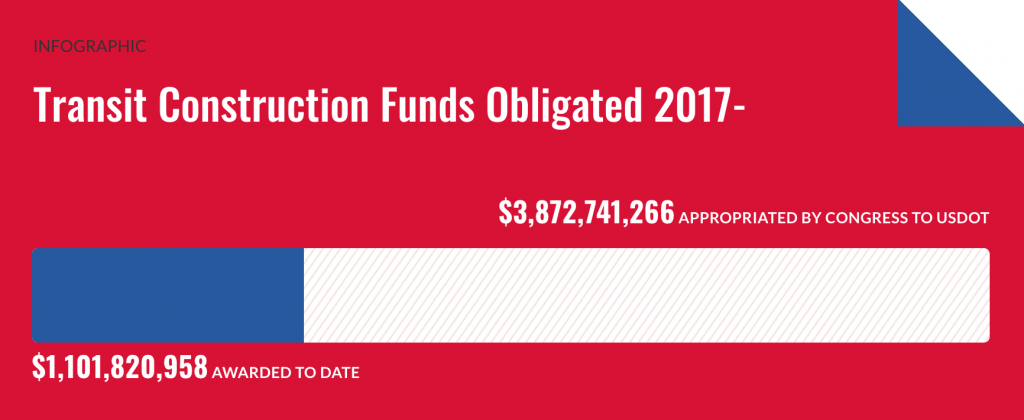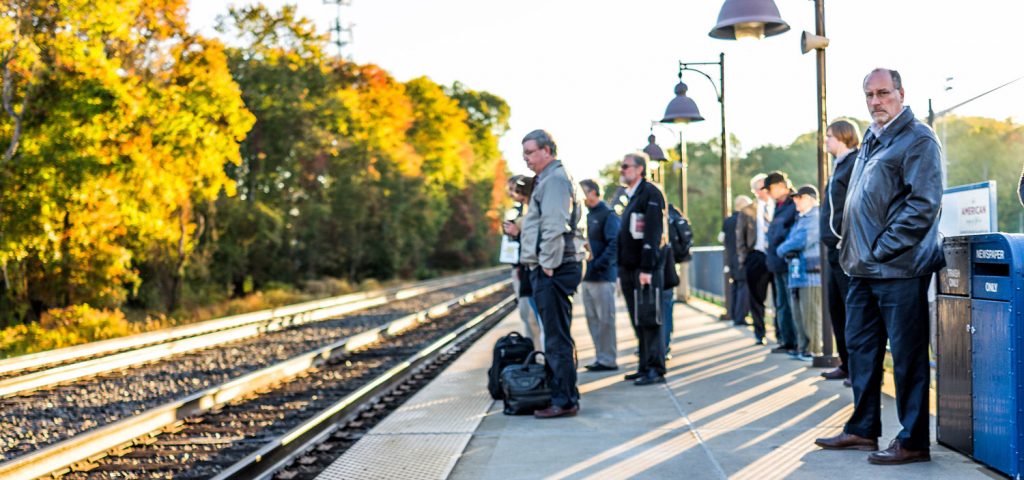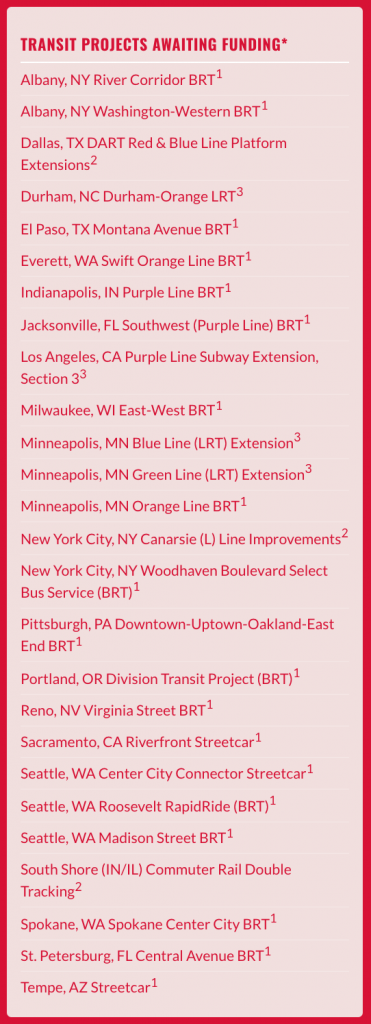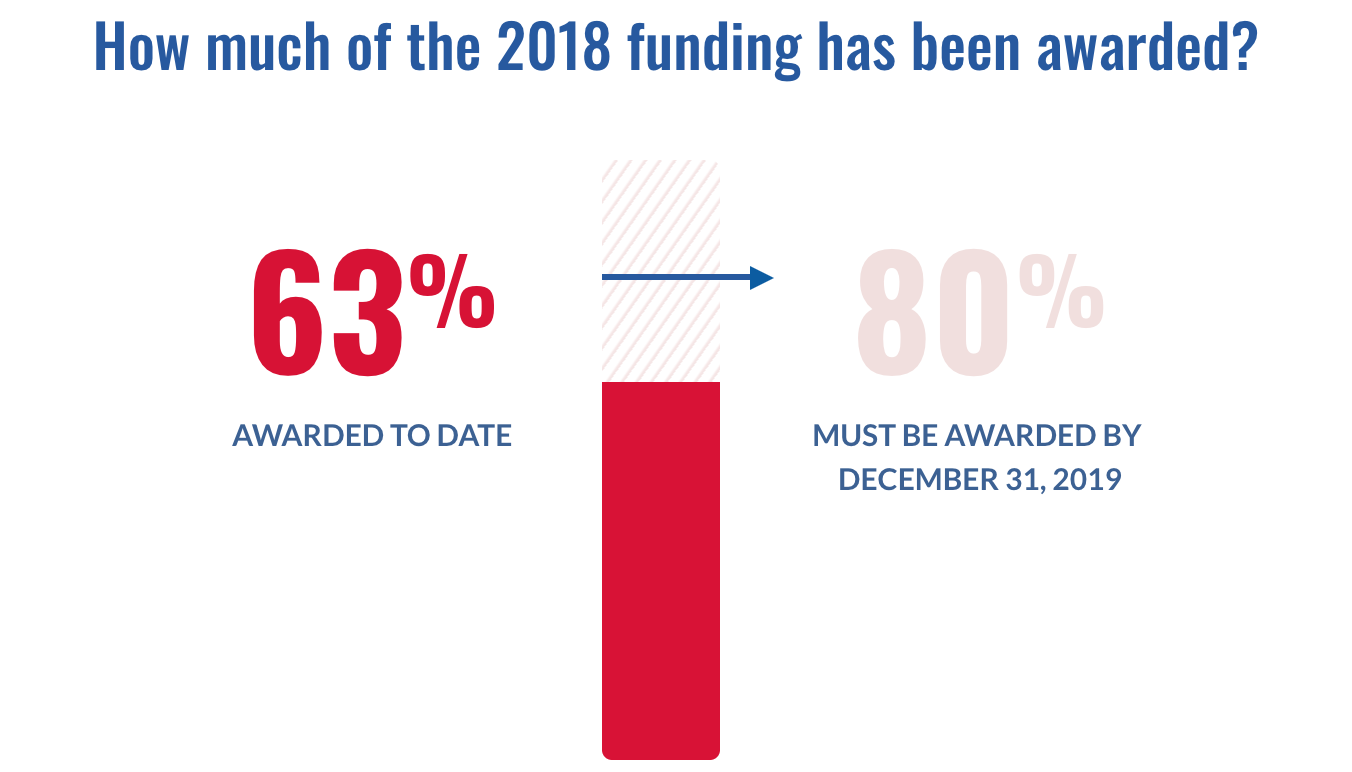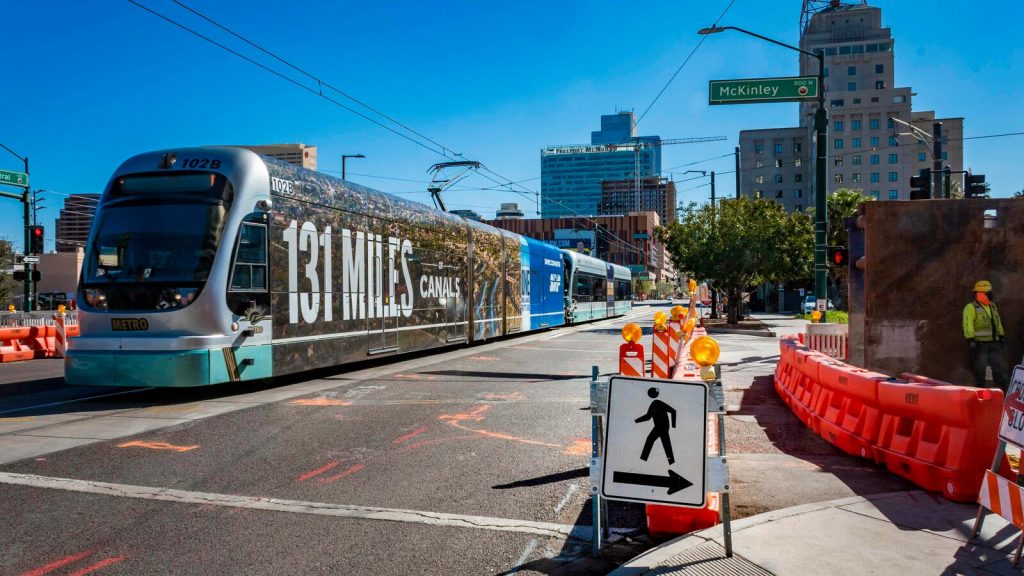
Local governments’ budgets have been decimated by the pandemic. Yet the Capital Investment Grant (CIG) program—the main federal program for funding new transit construction—counts on project sponsors matching federal funds with local funds. To keep transit projects moving, the House approved increased emergency funding for over 24 CIG projects from Arizona to New York in the upcoming COVID-19 relief package.

Phoenix, AZ’s Valley Metro’s South Central Extension/Downtown Hub—a CIG project that would receive this emergency funding. Photo courtesy of Valley Metro.
Capital Investment Grants (CIG)—composed of the New Starts, Small Starts, and Core Capacity programs—is the federal government’s main program for constructing new and expanded transit projects. Potential CIG projects go through multiple rounds of review by the Federal Transit Administration (FTA), where they are rated on cost-effectiveness, environmental benefits, land use, congestion relief, and mobility improvements.
Most other transportation grant programs require a 20 percent local match, whereas current law prohibits any CIG project where the local match is below 50 percent, as we wrote in our report The Green New Deal for City and Suburban Transportation. In normal times, this places a much higher burden on local and state governments that wish to build or expand public transit. COVID-19 has worsened this burden while also threatening local communities existing commitments.
Due to COVID-19, local governments’ revenue is significantly down, with tax receipts declining with the economy. As a result, project sponsors are having a much harder time raising funds for the local CIG match. This threatens the viability of existing projects, potentially leading to delays, cost increases and the extreme outcome of cancelling projects. The recent action by the FTA helps, but the CIG program needs emergency funding to support local communities and keep projects moving.
We are thrilled that the House Budget Committee added an additional $425 million to the $1 billion in emergency funding for CIG included in the first version of the latest COVID relief bill (the American Rescue Plan Act). They will go a long way towards keeping projects moving through the CIG pipeline—at a time when we need frequent and affordable transit more than ever.
This additional emergency funding for CIG was part of the COVID bill approved by the House this past Friday, which now heads to the Senate. This bill also includes $30 billion in emergency funding for transit agencies, which is needed to ensure that transit can continue to connect Americans to jobs and essential services—because if you have no money to run the system, building new transit is pointless.
The original bill approved by the House Transportation and Infrastructure Committee provided $1 billion for CIG projects that have negotiated full funding grant agreement (FFGAs) in fiscal year 2019 or 2020 but are not yet open for revenue service. These funds were to increase the projects’ non-federal match, as a result of project sponsors facing significantly reduced revenues due to COVID.
The additional $425 million, added to the bill by the House Budget Committee, will be allocated in two ways:
- $250 million to increase the amount given to each project funded by the base bill
- $175 million for projects that received their most recent CIG funding in fiscal year 2018 but are not yet open for revenue service.
Yet more needs to be done to support the demand for new and expanded public transit.
As described in The Green New Deal for City and Suburban Transportation, Transportation for America recommends replacing the CIG program with two programs: A $6 billion/year formula expansion program, and a $6 billion/year discretionary grant program for capital projects that improve access to frequent transit for low-income people, both requiring a 20 percent local share.
These investments—along with investments in transit operations, maintenance, and electrification—can be possible if Congress provides transit with the same amount of funding as highways. To truly support public transit, the federal transportation program must be re-oriented towards investments in transit that substantially improve people’s access to jobs and services.
With Congress writing long-term transportation policy now, we need your help to push for fundamental reforming the federal transportation program. Sign up for our Month of Action—kicking off today, Tuesday, March 2—to take one small action every week to influence this important legislation.




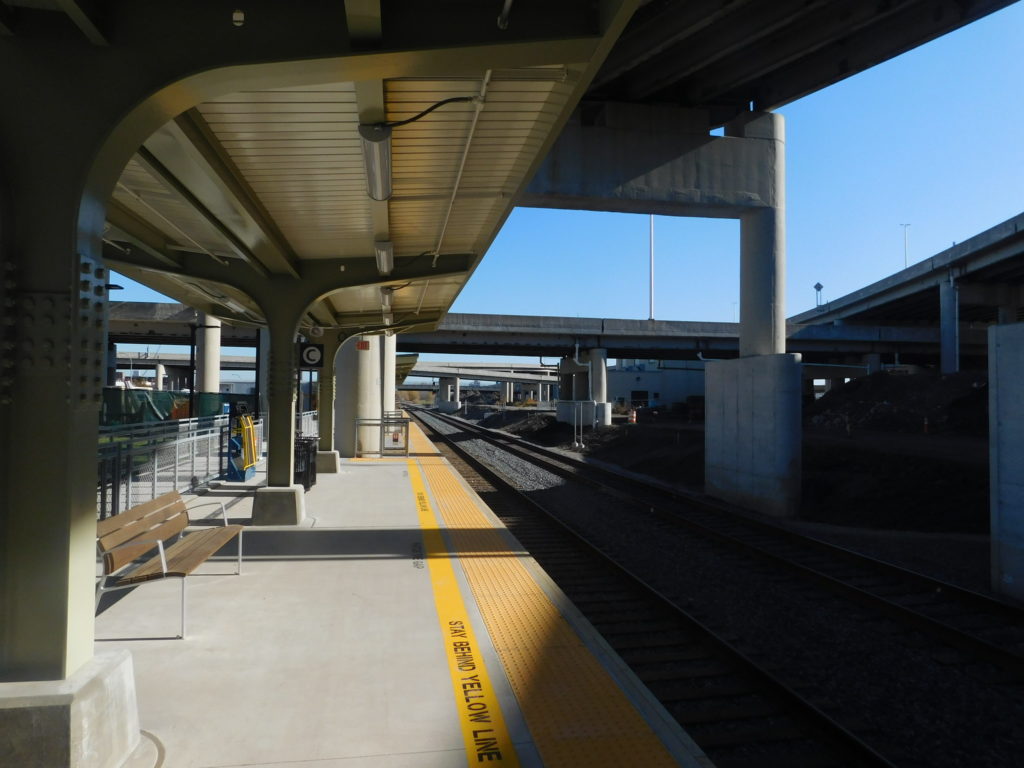
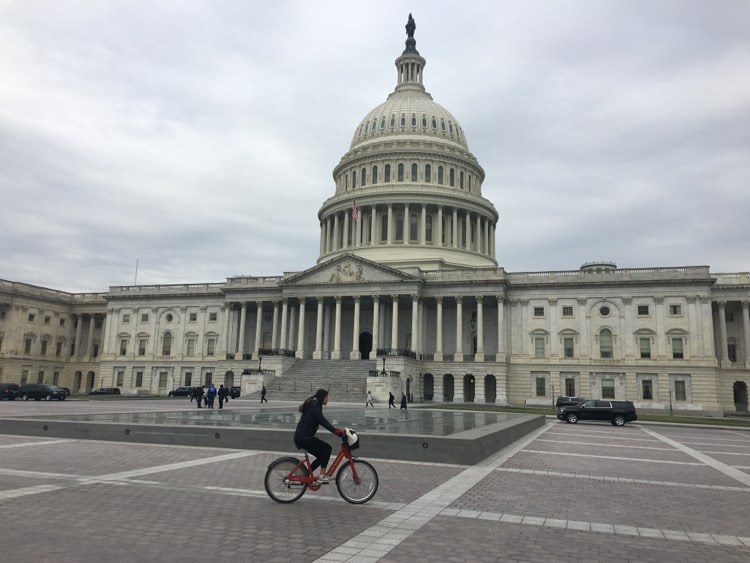
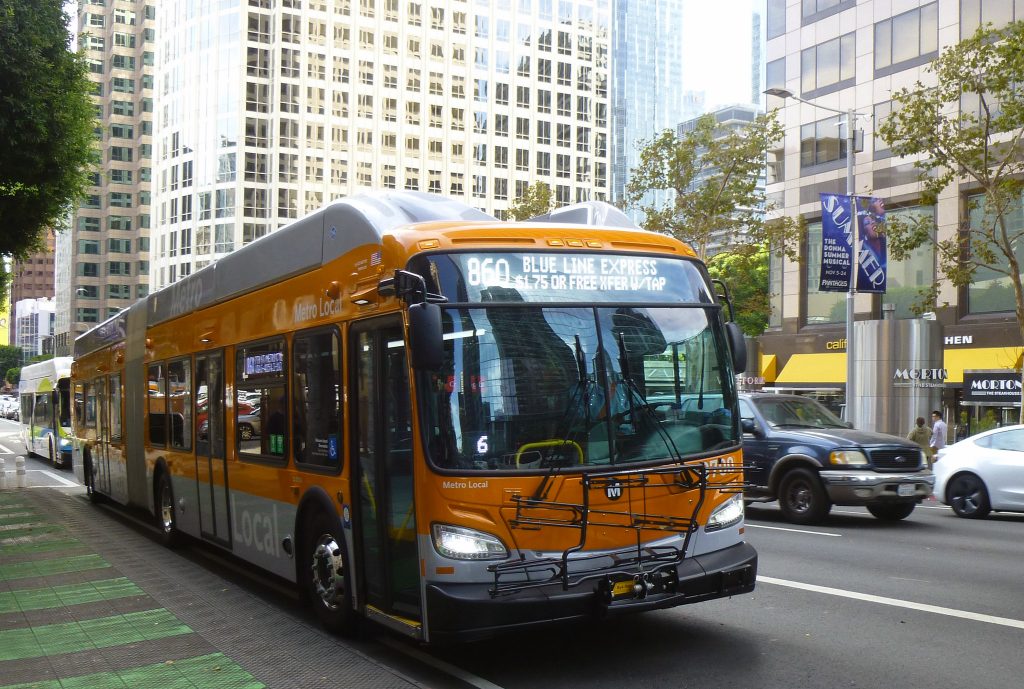
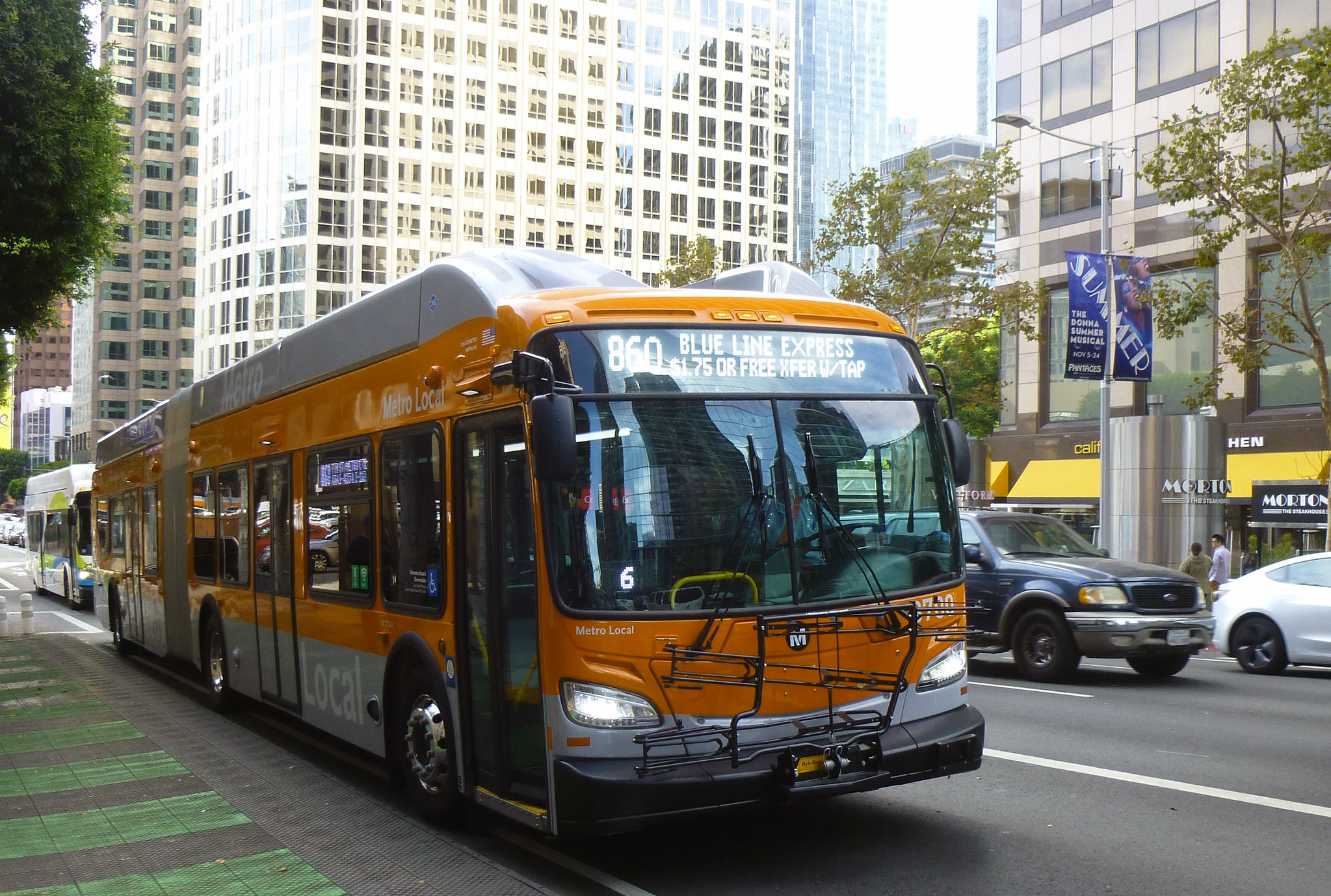
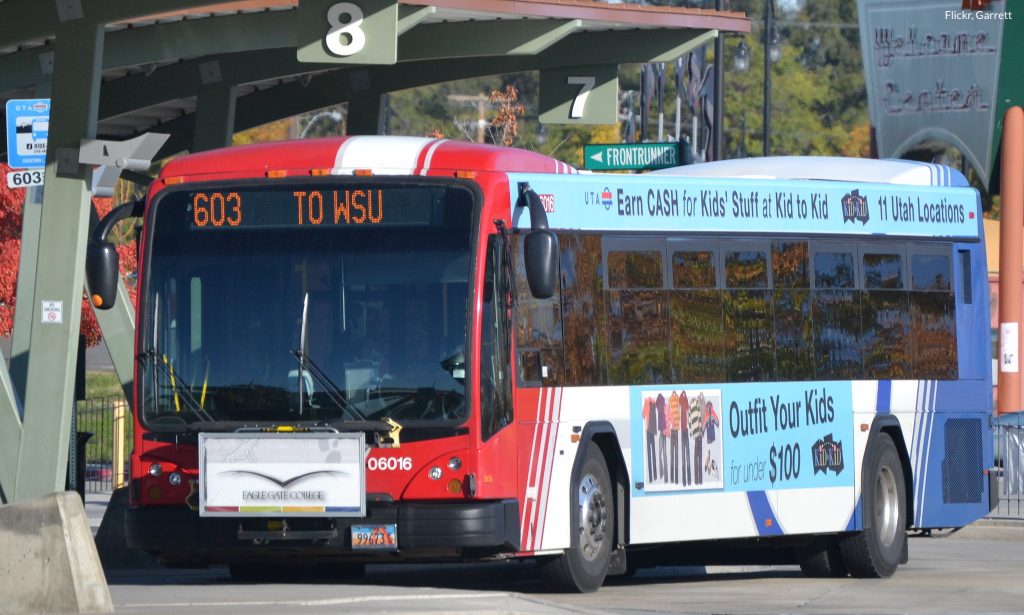
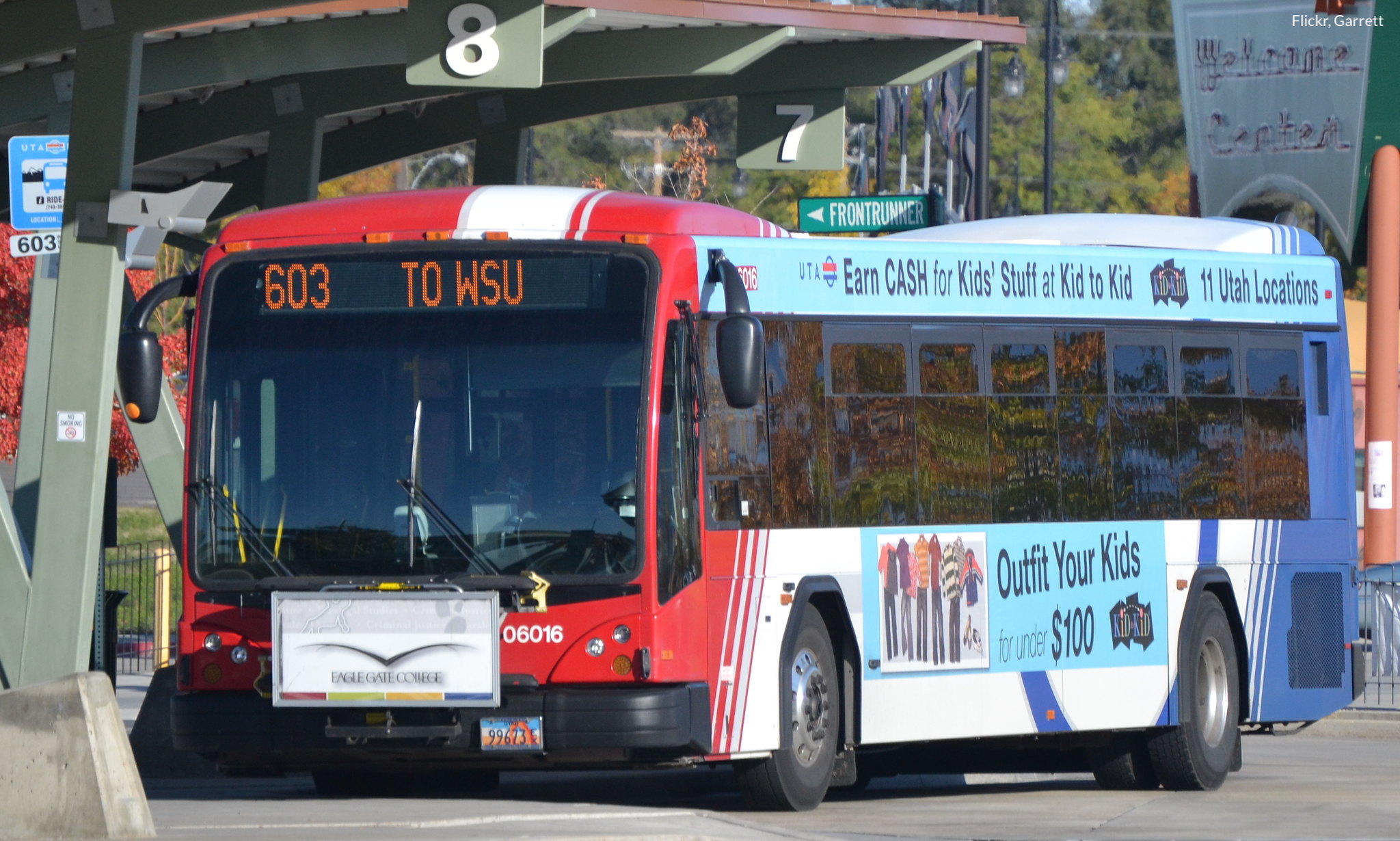
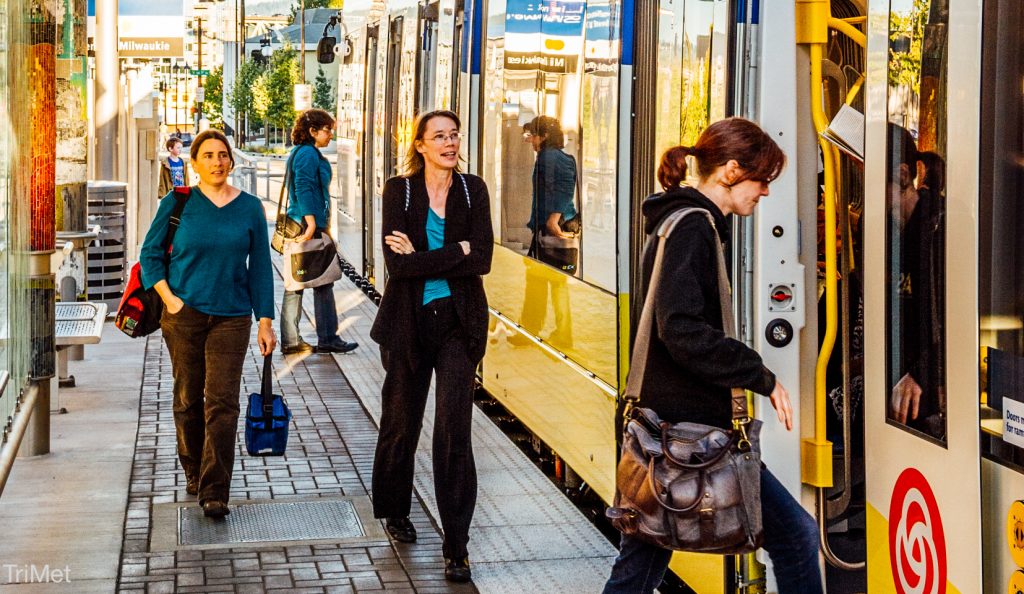
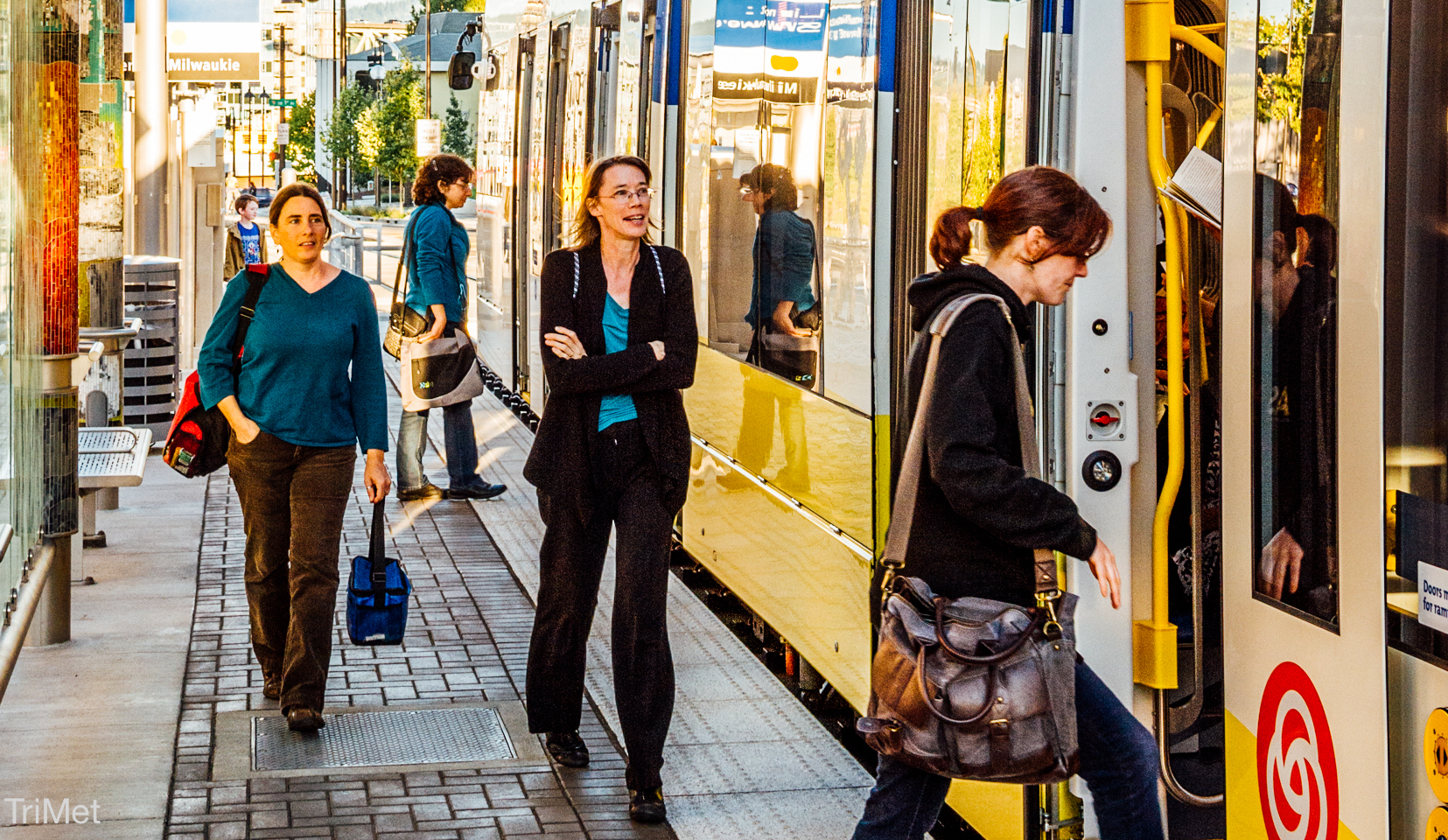
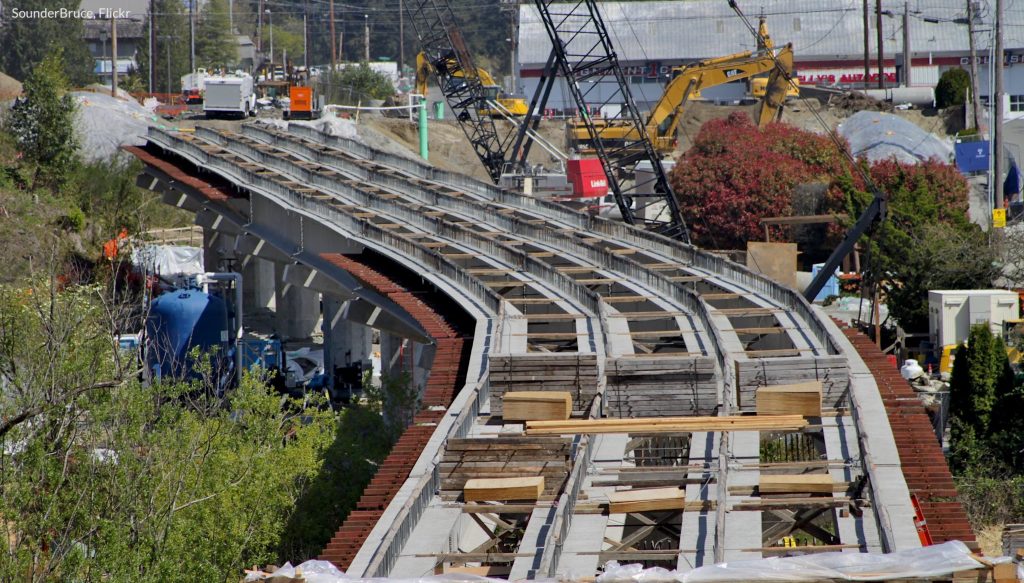
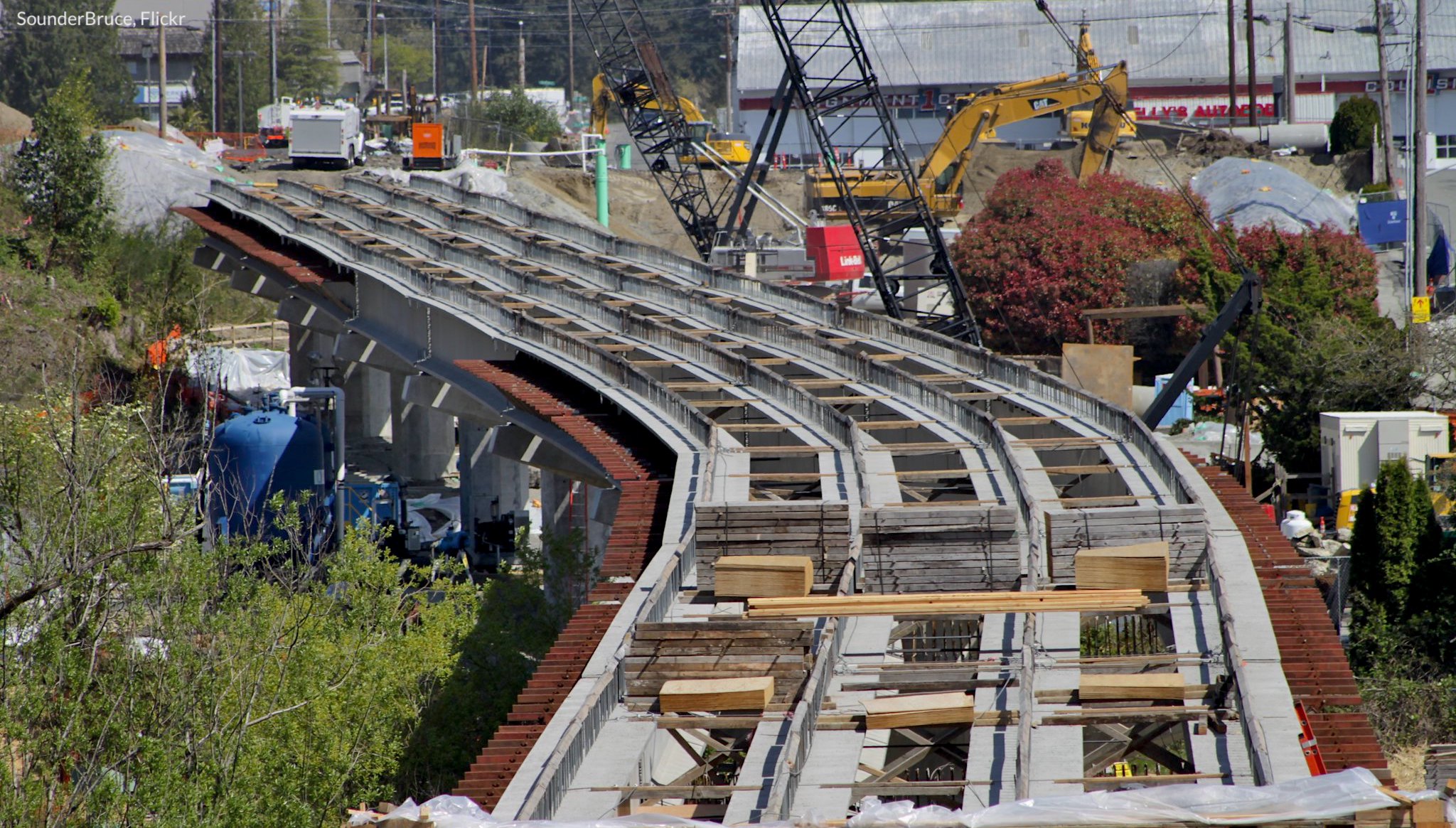
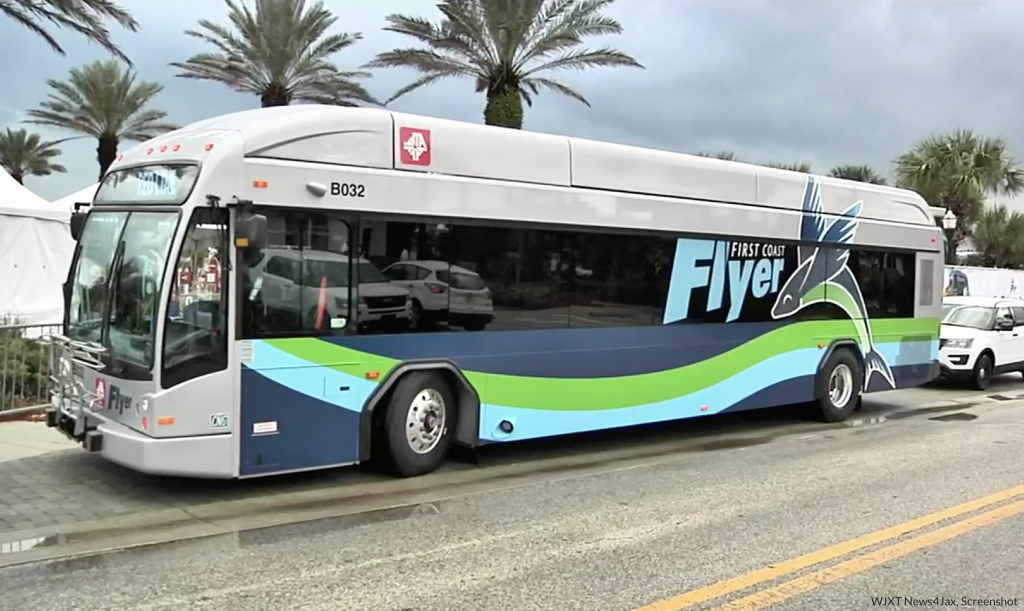
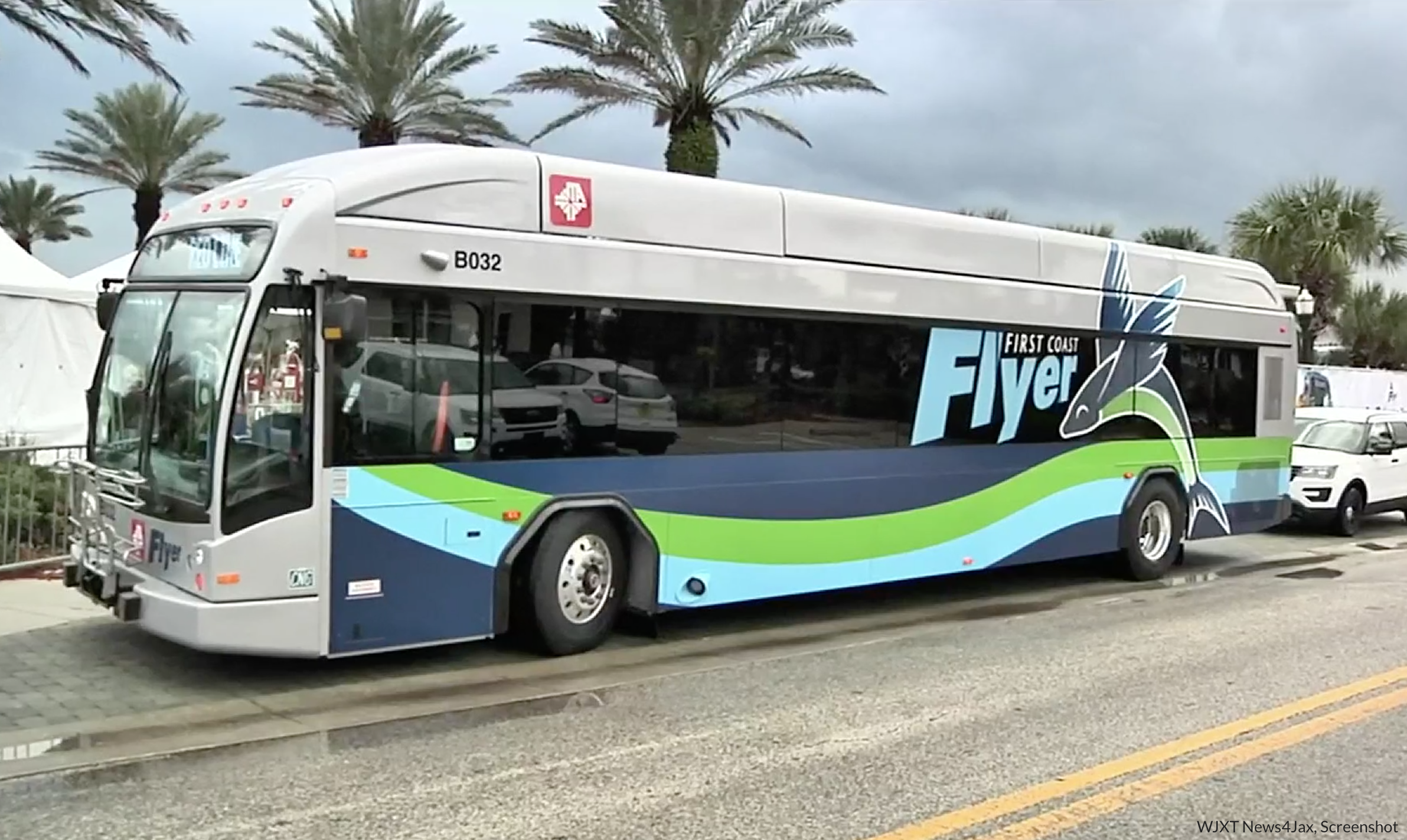
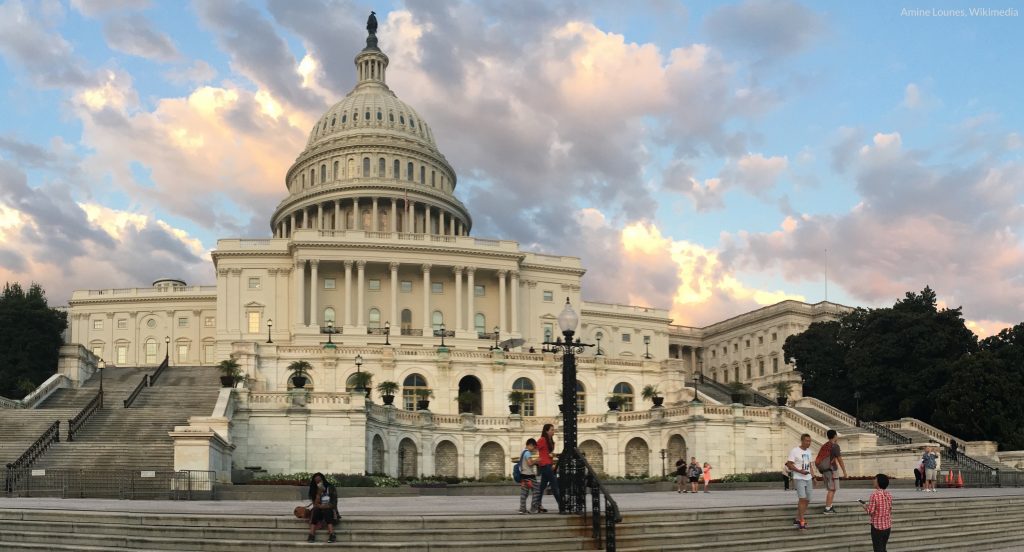
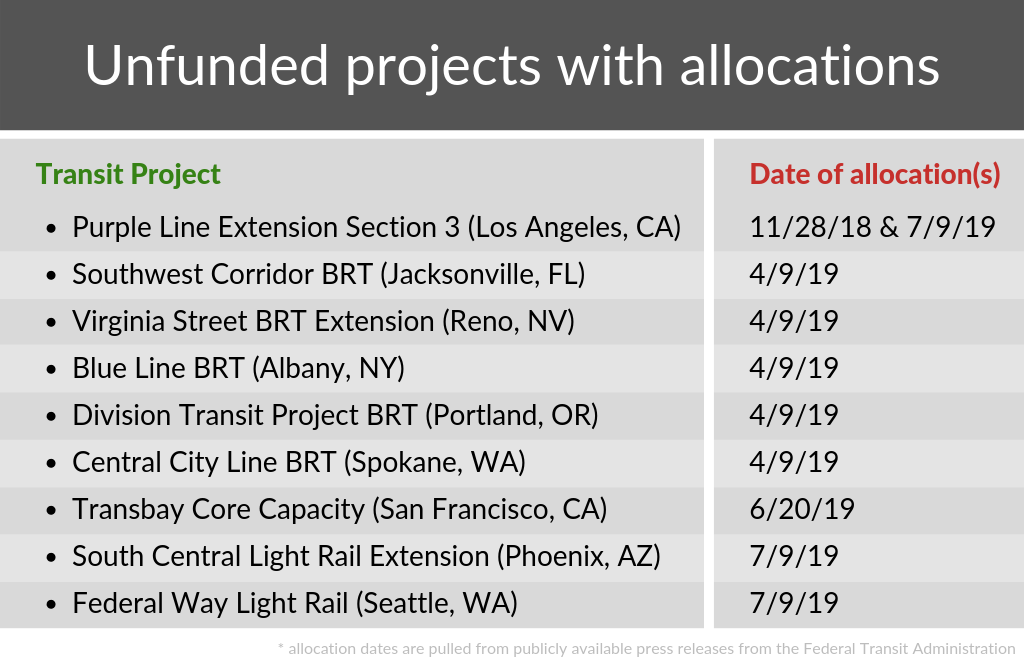
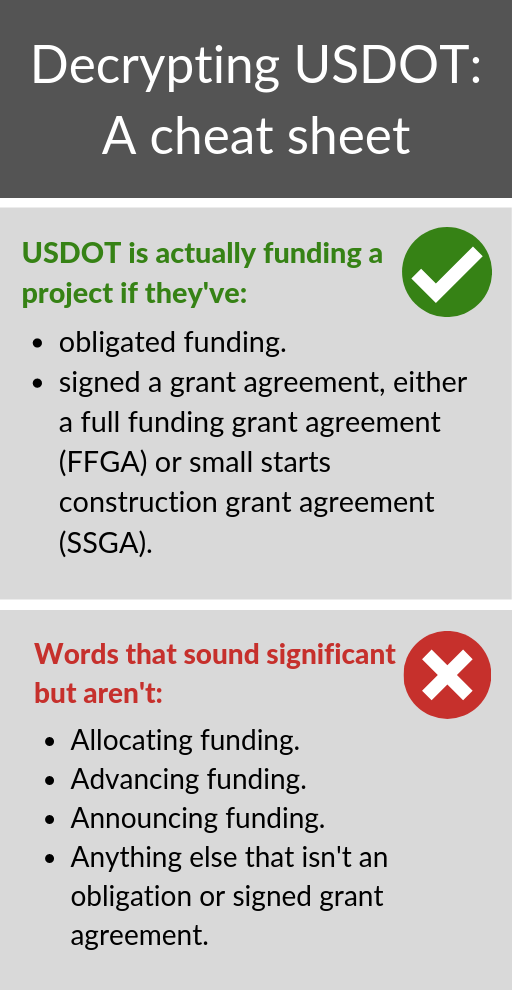
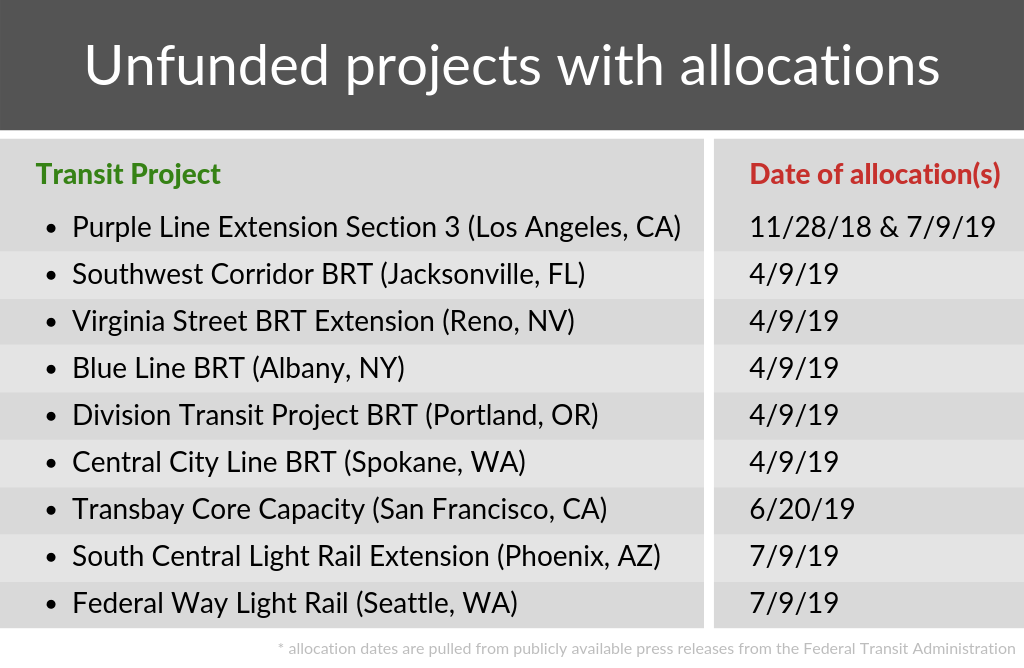
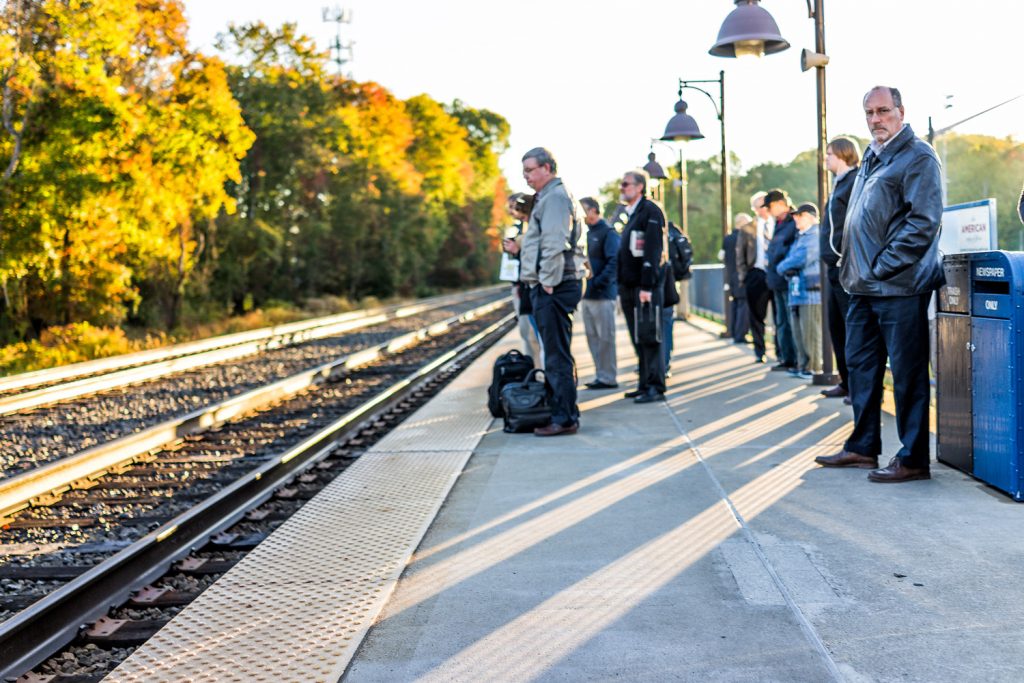

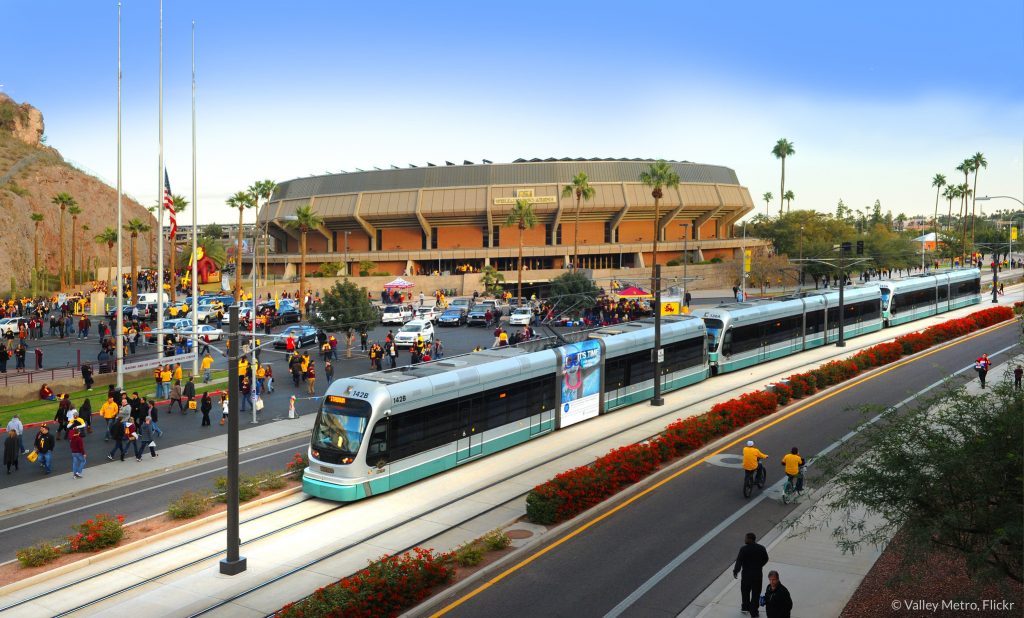
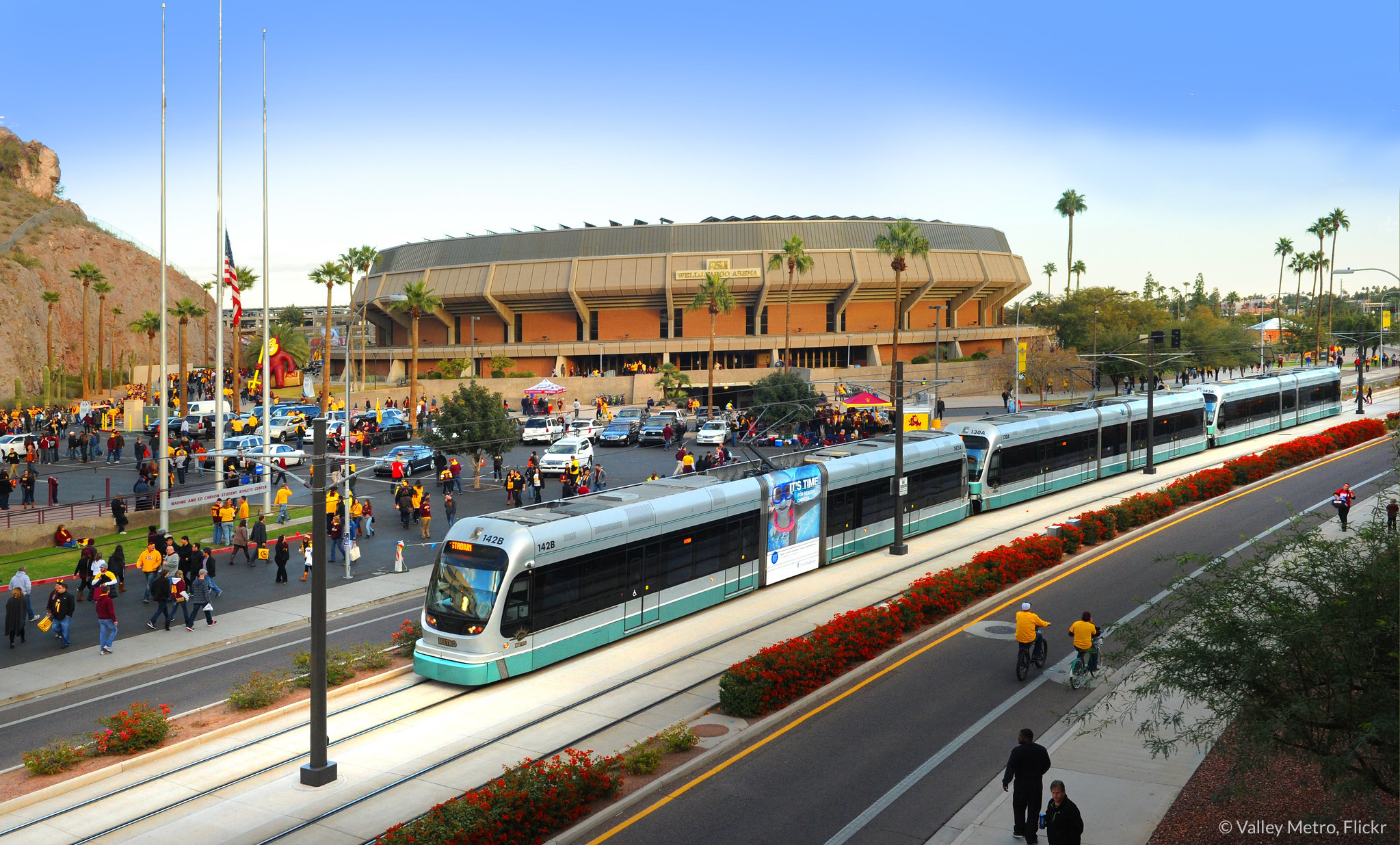
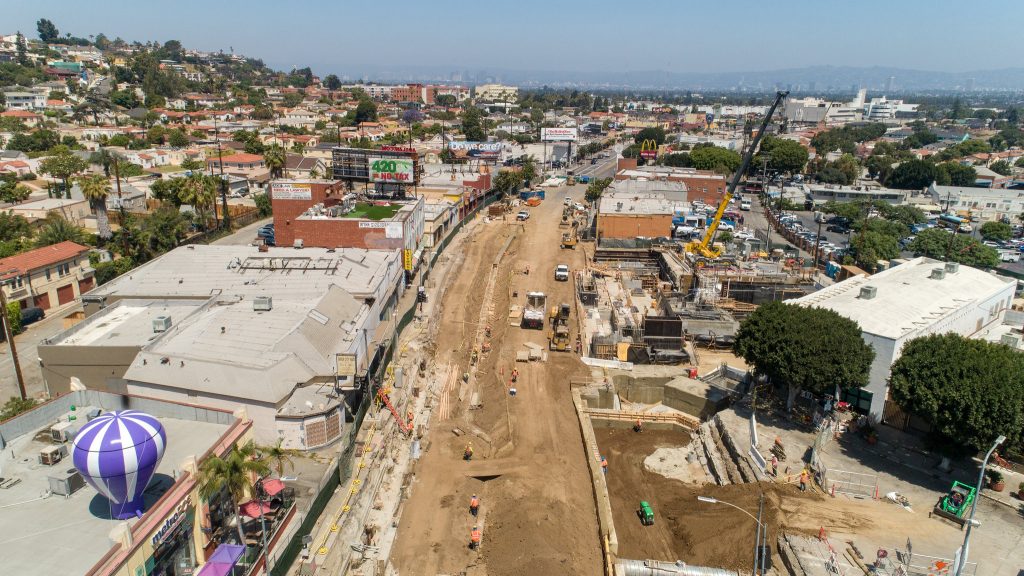
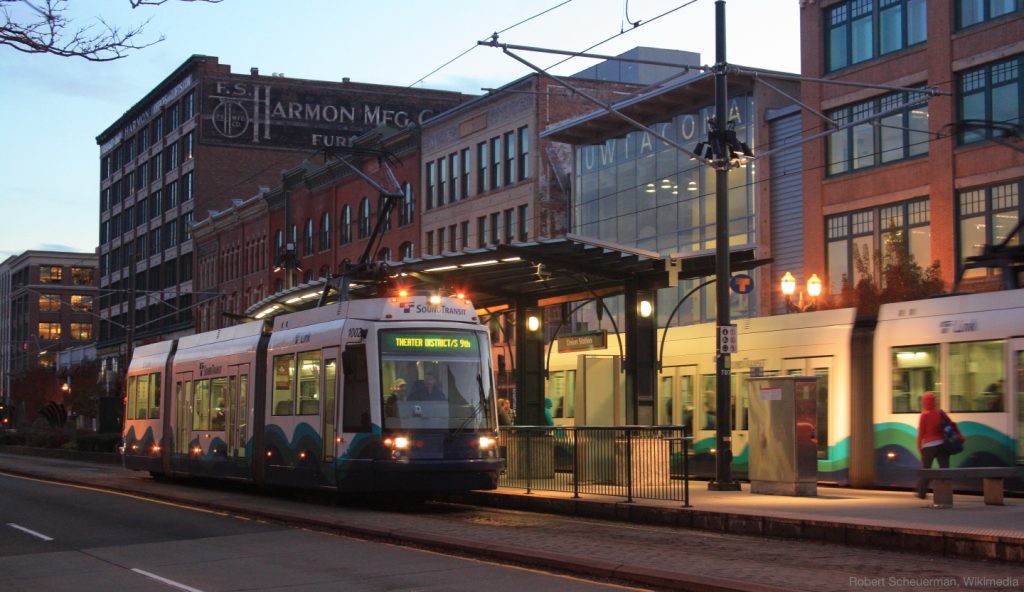
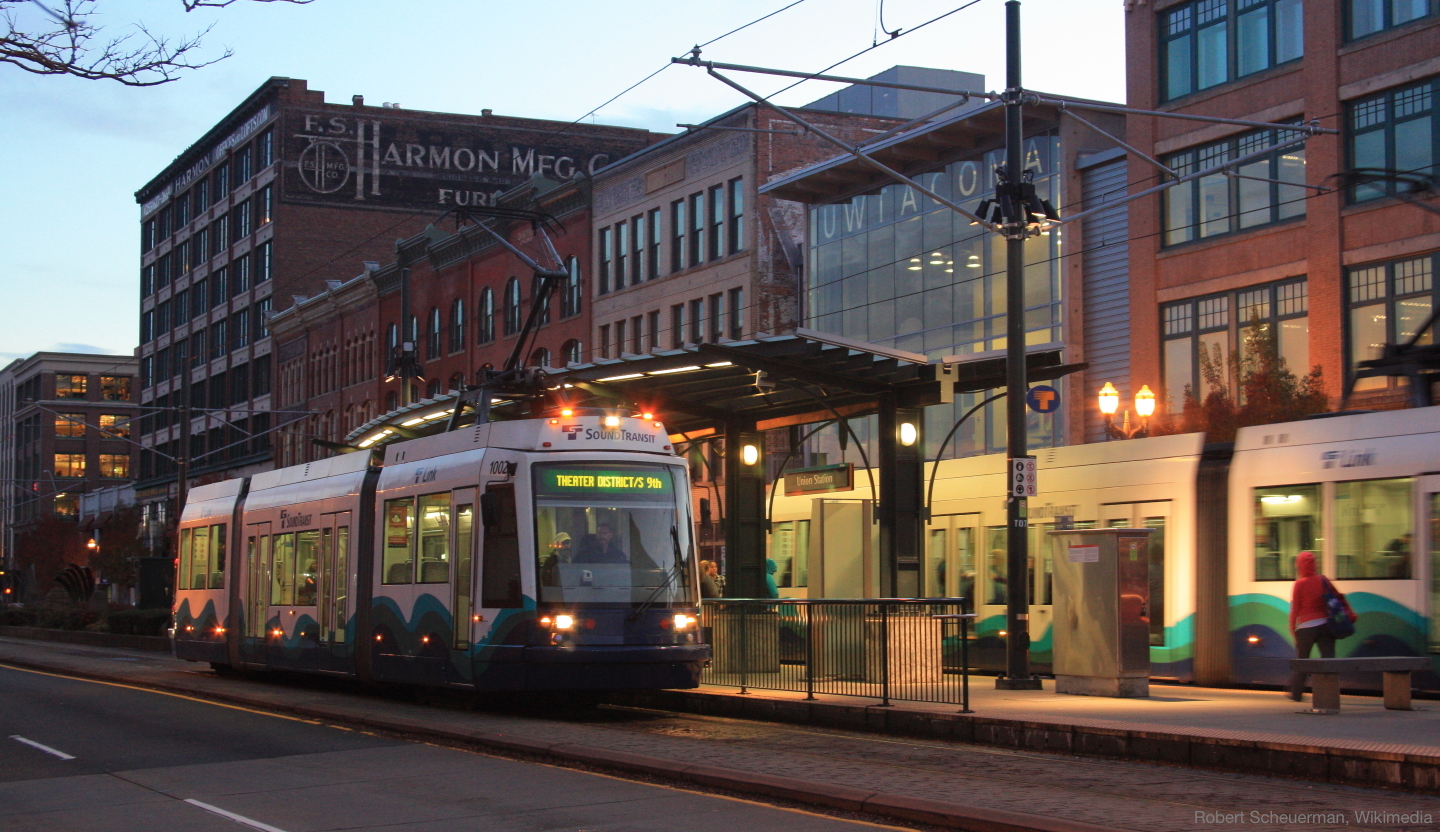
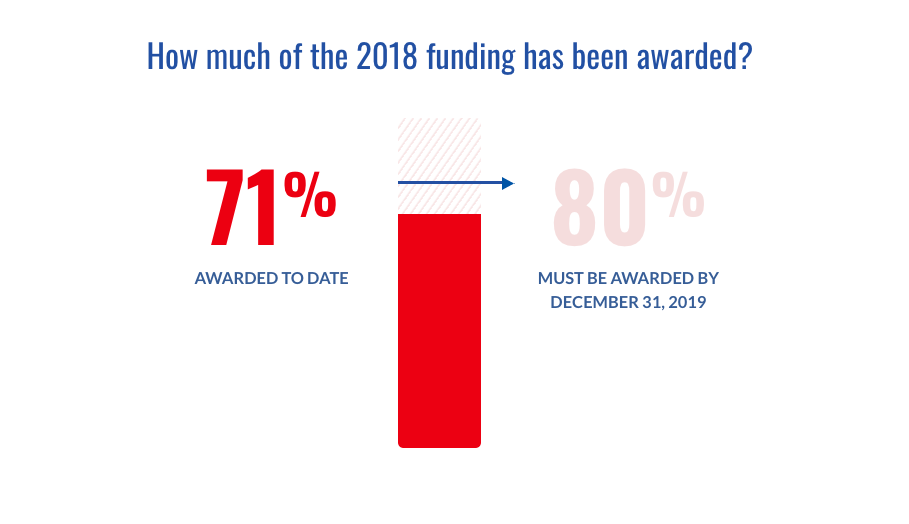
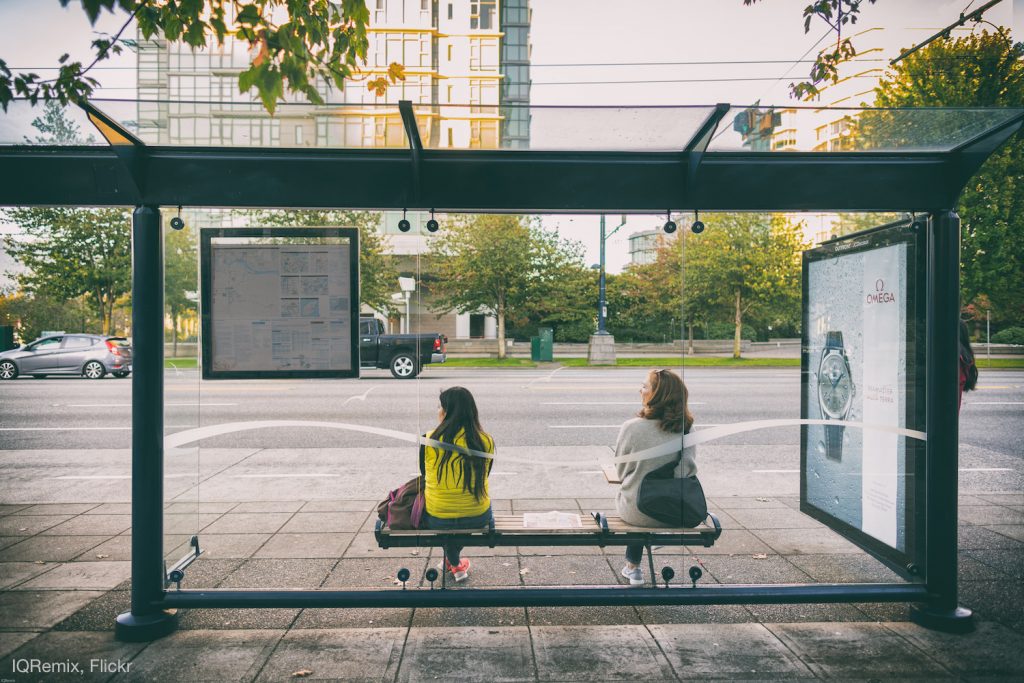
 President Trump’s just-released 2020 budget would cut federal transit capital grants by $1 billion. Although this is a slight improvement from the administration’s past efforts to eliminate all funding for new transit projects, it comes after a backlash against USDOT—stoked by Transportation for America’s
President Trump’s just-released 2020 budget would cut federal transit capital grants by $1 billion. Although this is a slight improvement from the administration’s past efforts to eliminate all funding for new transit projects, it comes after a backlash against USDOT—stoked by Transportation for America’s 